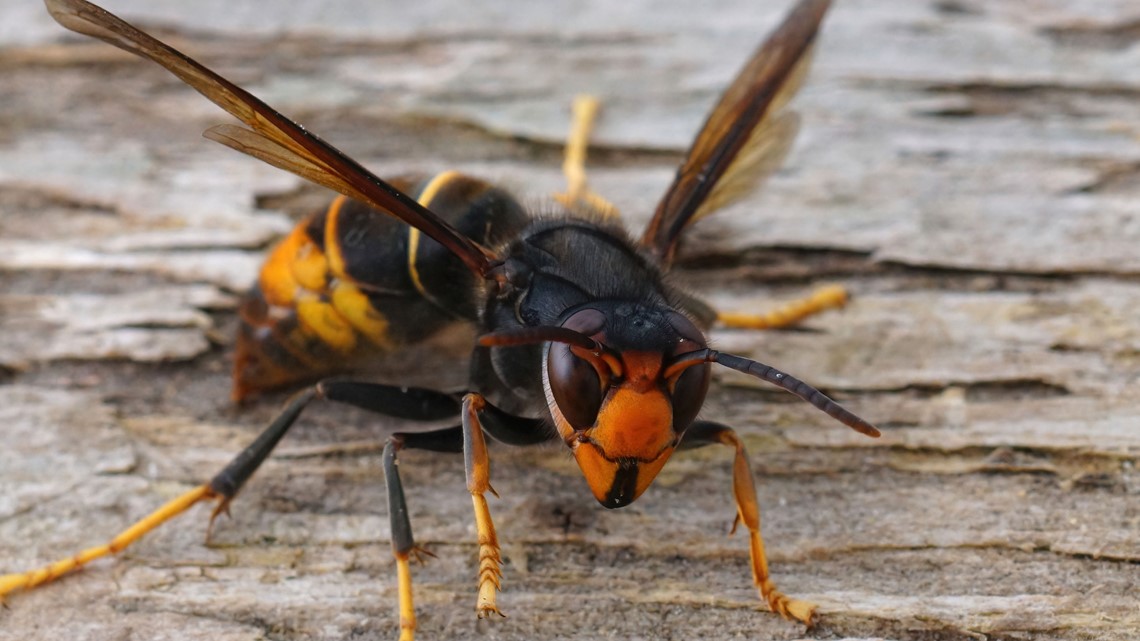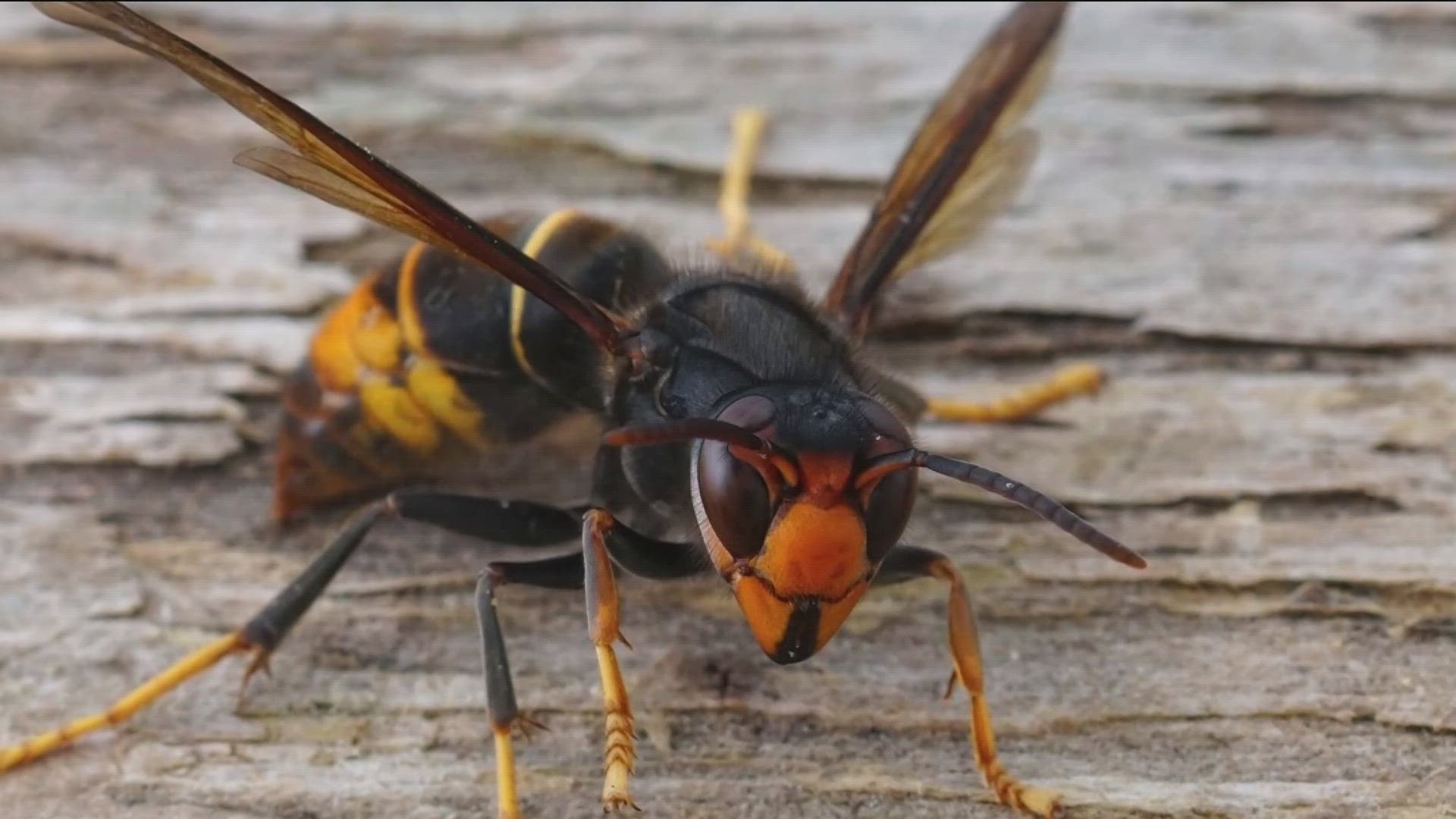ATLANTA — A close relative hornet species of the so-called "murder hornet" has been found in Georgia for the first time, the state Department of Agriculture announced Tuesday.
The yellow-legged hornet, or Asian hornet (Vespa velutina), was discovered by a beekeeper in Savannah. It is smaller than the Asian giant hornet, or "murder hornet" (Vespa mandarinia) but problematic nonetheless as a non-native species that the Department of Agriculture said could "potentially threaten honey production, native pollinators and our state's number one industry - agriculture."
The finding of the hornet was reported on Aug. 9 and confirmed by the University of Georgia and the federal Animal and Plant Health Inspection Service (APHIS).
The University of Florida's Institute of Food and Agricultural Sciences notes it has "invaded several European regions" and is a "pest of honey bees and a major concern concern to many beekeepers."
The Georgia Department of Agriculture and the federal APHIS are asking for anyone to report additional sightings, but note that yellow-legged hornets can be dangerous, and we encourage everyone to use caution in the event of a sighting."
Anyone who believes they have seen a yellow-legged hornet is asked to use this form to report it, or email yellow.legged.hornet@agr.georgia.gov.
It's generally identifiable as "the legs are partially or primarily yellow, hence the common name 'yellow-legged hornet,'" and "the body and head coloration can vary. "


The state said it is "developing an operational plan to trap, track, and eradicate the yellow-legged hornet in Georgia."
"The plan will begin with trapping, and APHIS and GDA will set out traps and survey for this pest to determine if additional yellow-legged hornets are in the area," a release said. "If a colony is discovered through reporting, trapping, or tracking, the colony will be eradicated. APHIS is providing technical expertise, technology, and outreach support as well as analyzing the hornet’s DNA to determine if it is related to European populations of this species."
The Department of Agriculture described the yellow-legged hornet as a "social wasp species that constructs egg-shaped paper nests above ground, often in trees."
"These nests can become large, housing an average of 6,000 workers. The yellow-legged hornet is native to tropical and subtropical areas of Southeast Asia. It is also established in most of Europe, parts of the Middle East, and parts of Asia where it isn’t native," a release said.
Georgia Agriculture Commissioner Tyler Harper said in a statement: ""Georgians play an important role helping GDA identify unwanted, non-native pests, and I want to thank the beekeeper who reported his sighting to us, as well as our partners at the University of Georgia and USDA’s Animal & Plant Health Inspection Service for working swiftly to confirm its identity. Our experienced team of professionals will continue to assess the situation and are working directly with USDA APHIS and UGA to trap, track, and eradicate the yellow-legged Hornet in Georgia. "

